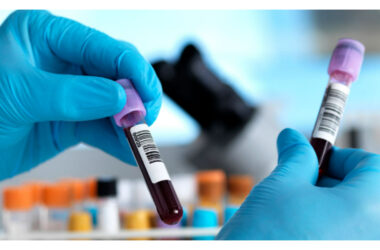It is possible for no symptoms to manifest during the early stages of colorectal cancer. In some cases, colon cancer symptoms won’t develop until the condition is already in the second stage. This is why routine screening tests for colorectal cancer are ideal especially for those who are over 50 years old.
The Lowdown on Colorectal Cancer
The term colorectal cancer is used to describe rectal and colon cancer. Since both have the same features and are situated in the digestive tract’s lower region, they are grouped together. The function of the colon is to absorb food and water, and to store body waste. Then, this waste will pass through the rectum to be expelled from the body.
Most rectum or colon cancer will develop from polyps. That said, finding and removing polyps early can help prevent them from turning cancerous.
Early Symptoms and Warning Signs of Colorectal Cancer
While symptoms of the condition typically do not manifest in the early stage, there are also instances when symptoms can manifest.
Below are some of the warning signs and early colon cancer symptoms you need to look out for:
- Narrow stools
- Drastic (and unexplained) weight loss
- Rectal bleeding (dark or bright red in color)
- Tenesmus (the feeling that you need to pass stools even though your bowels are empty)
- Abdominal pain that’s persistent
- Anemia (secondary to iron deficiency)
While it is possible that the symptoms mentioned above are caused by less serious conditions such as ulcers, hemorrhoids, or Crohn’s disease, it is recommended that you still check with your doctor if you notice any of the aforementioned symptoms to be on the safe side. Also, seeing blood in your stool is something you should not take lightly.
Colorectal Cancer Local Symptoms
The term “local symptoms” refer to those symptoms that only affect the rectum or the colon. This means the cancer has not spread to the other organs yet.
Early colon cancer symptoms often only affect the colon and can cause changes in the bowel habits. Some of the most prevalent local symptoms of colorectal cancer that can manifest include:
- Thin stools (thinner than usual)
- Feeling like the bowel won’t empty completely
- Constipation
- Blood in the stool or rectal bleeding
- Diarrhea
- Cramps, discomfort, or abdominal bloating
- Changes in the bowel habits (i.e., alternating between constipation and diarrhea)
- Changes in stool consistency (watery or loose)
Colorectal Cancer Systemic Symptoms
As the cancer grows, it can spread throughout the body and cause systemic symptoms. Systemic symptoms are those that affect more than just the digestive tract. Some of the most common colorectal cancer systemic symptoms include:
- Weakness
- Vomiting
- Nausea
- Fatigue
- Jaundice
- Unexplained weight loss
- Unexplained appetite
Symptoms of Rectal Cancer
Rectal cancer symptoms can be similar to some bowel conditions like Crohn’s disease or ulcerative colitis. However, as the cancer develops, the symptoms can become more persistent and severe. Some of the most prevalent rectal cancer symptoms include:
- Constipation
- Diarrhea
- Bloody stool
- Change in the shape and size of the stool
- Inability to empty the bowel completely
Metastatic Symptoms
Cancer that spreads from where it started to a distant part of the body is referred to as metastatic cancer. Metastasis occurs when the cancer cells spread to other body parts. When metastasis happens, the cancer cells will break from the primary tumor and will travel through the lymph or blood system. They will also form new metastatic tumors in other body parts.
For many types of cancer, metastatic cancer is also called stage IV (4) cancer since metastasis usually occurs at the later stages of cancer which is why survival rates are drastically reduced.
Those with metastatic colorectal cancer won’t always develop symptoms prior to the diagnosis. Metastatic colorectal cancer symptoms however will depend on the tumor(s) size and if the cancer has spread beyond the rectum or the colon. For instance:
- Symptoms can include constipation, fractures, high calcium levels and pain
- Coughing, fatigue, pain, breathing difficulty, shortness of breath
- Fatigue, jaundice, nausea, increased abdominal girth, hand and feet swelling
- Lymph Nodes of the Abdomen. Swollen belly, bloating, loss of appetite
















